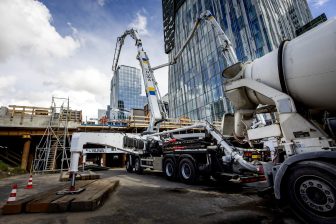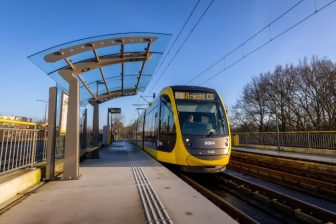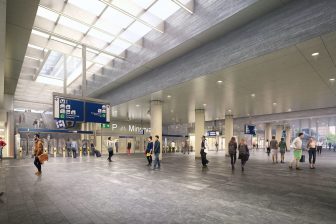
Alstom to supply signalling and infrastructure for Cairo metro
Alstom has signed two contracts with Egypt’s National Authority for Tunnels (NAT) to supply the signalling system[1] and the infrastructure[2] of the phase 4A of Cairo metro line 3, currently under construction. Alstom’s shares in these contracts are worth around €80 million.
Cairo’s metro carries 3 million passengers per day and this number should reach 5 million by 2020. Its network includes two fully operational lines and a third line, partially opened, whose construction is being carried out in different phases[3]. Phase 4A of line 3, which covers 5.7 km and comprises 5 stations, will be completed in early 2018.
For the phase 4A of Cairo metro line 3, Alstom will provide its Urbalis 200 signalling system as well as points machines and station signalling equipment. The company will also provide electromechanical equipment including power supply to feed the third rail, ventilation system and elevators/escalators. With this extension, the line will carry over 750,000 passengers per day in total safety.
“We are pleased that NAT has entrusted Alstom with these new contracts. This is a continuing partnership that was initiated more than 30 years ago. NAT can be reassured of Alstom’s engagement to further develop Cairo’s metro network”, said Gian-Luca Erbacci, Senior Vice-President of Alstom Transport for Middle East and Africa.
A long-time partner of the Cairo metro, Alstom has provided trains as well as infrastructure, signalling and services solutions for lines 1 and 2. In January 2015, Alstom has also signed a contract to modernise the signalling systems on the regional railway line from Beni Suef to Asyut.
1[1] In consortium with Thales
2[1] in consortium with Colas Rail, Orascom, and ARABCO
3[1] Phases: 1, 2, 3, and 4 A-B-C. Phase 1, opened in 2012 – Alstom provided: signalling, telecom and electromechanical equipment. Phase 2, inaugurated partially in May 2014 – Alstom provided the signalling, centralized control and telecommunication equipment in partnership with Thales, and traction supply equipment in partnership with Colas Rail. Phase 3 has not yet been awarded.
About Alstom
Alstom is a global leader in the world of power generation, power transmission and rail infrastructure and sets the benchmark for innovative and environmentally friendly technologies. Alstom builds the fastest train and the highest capacity automated metro in the world, provides turnkey integrated power plant solutions and associated services for a wide variety of energy sources, including hydro, nuclear, gas, coal and wind, and it offers a wide range of solutions for power transmission, with a focus on smart grids. The Group employs 93,000 people in around 100 countries. It had sales of over €20 billion and booked €21.5 billion in orders in 2013/14.
U las zojuist één van de gratis premium artikelen
Onbeperkt lezen? Profiteer nu van de introductieaanbieding voor € 10,- per maand.
Bent u al abonnee?



